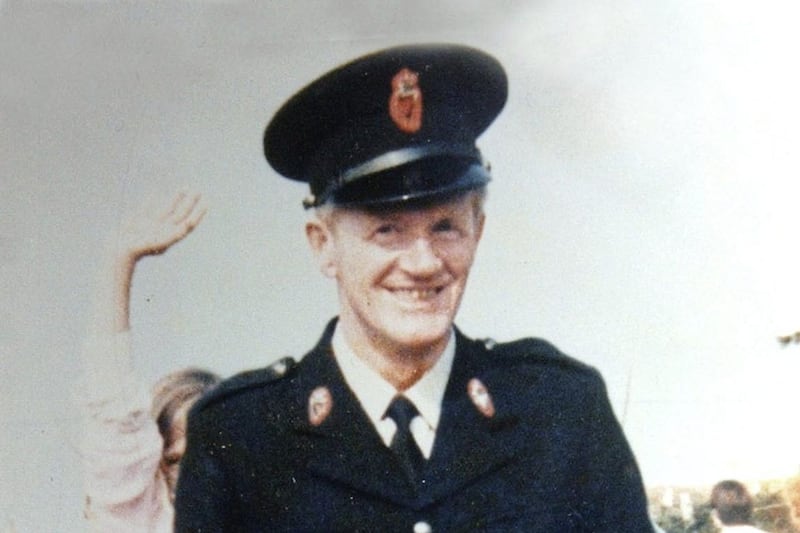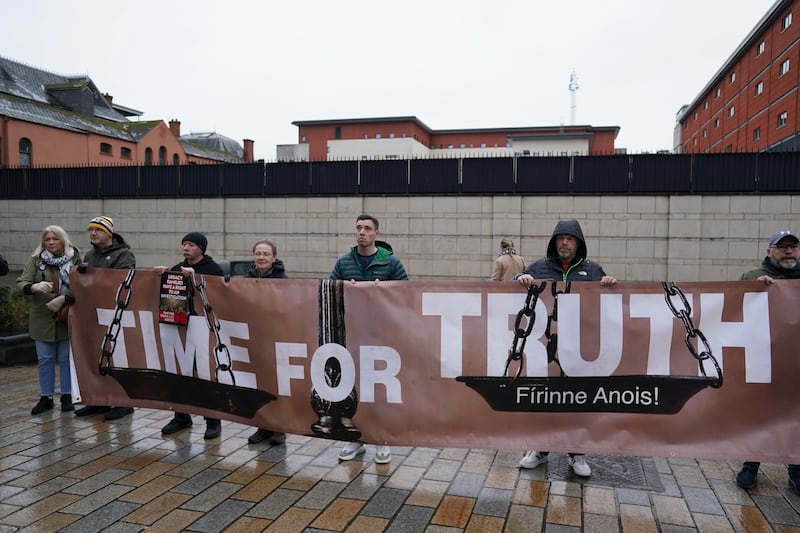The inquest of a Catholic teenager killed in a suspected loyalist bomb attack more than 50 years ago has been dramatically halted just hours before the British government’s contentious Legacy Act comes into play.
From Turf Lodge, John Moran (19) died 10 days after a car bomb was detonated outside Kelly’s Bar, at the junction of Springfield Road and Whiterock Road, in west Belfast on May 13, 1972.
Loyalist gunmen also sprayed survivors with bullets after the bomb went off.
It is understood legal teams were preparing to make their final submissions on Tuesday when coroner Maria Dougan stopped proceedings.
Under the British government’s Legacy Act, inquests that were not at findings stage by Wednesday were ended, along with civil cases.
In a provisional ruling, Ms Dougan said the cut-off date meant she was unable to obtain information she deemed important to the inquest.
The circumstances of the Kelly’s Bar explosion are disputed.
While Mr Moran’s family believe loyalists were to blame, the then Secretary of State William Whitelaw later claimed the bomb was left by the IRA.
It is believed by some the Kelly’s Bar device was planted by the same UVF gang that carried out the McGurk’s Bar atrocity six months earlier, claiming the lives of 15 people.
The security forces initially blamed the IRA for that blast, but this was later shown to be untrue.
The Kelly’s Bar attack sparked a series of gun battles involving the IRA, loyalists and the British army which resulted in the deaths of four people.
A key question for the inquest centered on whether the bomb was left by republicans or loyalists, with a focus on the type of technology available to the various groups at the time.
During Tuesday’s hearing Ms Dougan said it was brought to her attention that the Barron Report, which considered the UVF Dublin and Monaghan bombings in the 1970s, commented on the “capabilities of loyalist paramilitaries in 1972 in relation to the use of alarm timed devices”.
She then directed the Legacy Inquest Unit to “make enquiries to obtain the underlying material of the Baron report, held by Irish government authorities.”
Ms Dougan said while authorities were willing to assist with the request they were unable to do so within the timelines set down.
Ms Dougan said in her findings that there “is no prospect of this inquest being concluded save for my findings”.
She said there is “potentially relevant material likely to speak to a significant issue in this inquest, namely the method of detonation and attribution of the bomb either to republican or loyalist terrorists”.
Ms Dougan referred to the British government’s legacy deadline.
“If I was not bound by the deadline of the first of May 2024, I would have obtained that information.”
Mr Moran’s brother Chris Moran, said the decision to halt the inquest has “devastated” his family.
“Nobody was expecting it,” he said.
“We were informed 11 hours before the (Legacy Act) deadline.
“It has now closed, unless something changes in relation to the Legacy Act, that’s the end of the road for us, we can’t go any further.”
Solicitor Pádraig Ó Muirigh said: “This decision has been made just hours from the guillotine imposed by the Legacy Act.
“Our position has been that the coroner did not need to seek the additional material from the Taoiseach’s office and that there was compelling evidence before the coroner that loyalist paramilitaries were responsible for the explosion at Kelly’s Bar.”







